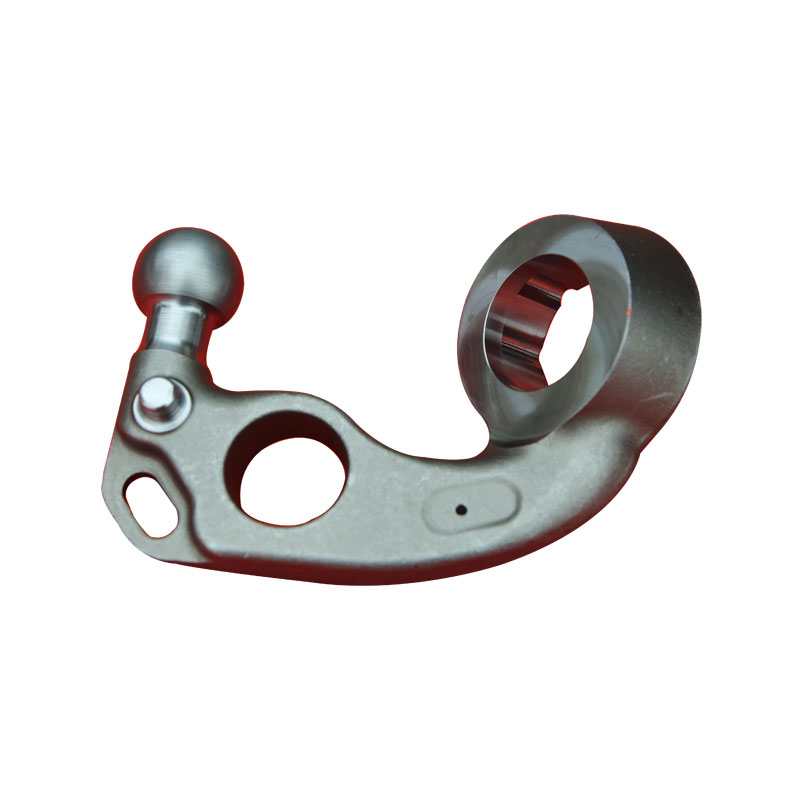Key Features of Forged Trailer Tow Ball
2024-06-21
A forged trailer tow ball is a critical component in towing systems, designed to connect a trailer to a towing vehicle securely. Forging is a manufacturing process that enhances the strength and durability of the tow ball, making it suitable for heavy-duty towing applications. Here’s a detailed overview:
Key Features:
1. Material:
- Typically made from high-strength steel or alloy steel.
- Forged construction improves grain structure, resulting in superior strength and toughness.
2. Strength and Durability:
- Forging process enhances the mechanical properties of the steel, providing higher load-bearing capacity.
- Resistant to wear and fatigue, ensuring a longer lifespan under demanding conditions.
3. Surface Finish:
- Often comes with a corrosion-resistant coating such as chrome plating or powder coating.
- Smooth finish reduces friction and wear on the hitch coupling.
4. Standard Sizes:
- Common sizes include 1-7/8 inches, 2 inches, and 2-5/16 inches, matching the couplers of various trailers.
- Shank diameters and lengths vary to fit different mounting brackets and hitch configurations.
5. Weight Ratings:
- Available in different weight capacities, typically ranging from 2,000 pounds to over 15,000 pounds.
- Clearly marked with weight rating and size for easy identification.
Manufacturing Process:
1. Forging:
- A heated steel billet is shaped under high pressure using forging dies.
- The process refines the grain structure, enhancing the mechanical properties of the steel.
2. Machining:
- Precision machining ensures accurate dimensions and a smooth, rounded ball surface.
- Threads are cut into the shank for secure attachment to the hitch receiver.
3. Heat Treatment:
- Heat treatment processes such as quenching and tempering increase hardness and strength.
4. Surface Coating:
- Coatings such as chrome plating or powder coating are applied for corrosion resistance and aesthetics.
5. Quality Control:
- Rigorous testing and inspection ensure compliance with safety standards and specifications.
Applications:
1. Towing Trailers:
- Used for connecting a wide range of trailers, including utility trailers, boat trailers, and RVs.
2. Industrial Towing:
- Suitable for heavy-duty industrial applications, such as towing machinery and equipment.
3. Agricultural Use:
- Used in farming equipment for towing implements and trailers.
Installation and Maintenance:
1. Installation:
- Ensure the tow ball size matches the trailer coupler size.
- Securely attach the tow ball to the hitch receiver using a properly sized wrench.
- Tighten the nut to the manufacturer’s specified torque to prevent loosening.
2. Inspection:
- Regularly inspect the tow ball for signs of wear, corrosion, or damage.
- Check the integrity of the mounting hardware and ensure it is tightly secured.
3. Lubrication:
- Apply a light coat of grease to the ball surface to reduce friction and wear on the trailer coupler.
4. Replacement:
- Replace the tow ball if there are any signs of significant wear, cracks, or deformation.
Safety Considerations:
1. Weight Capacity:
- Never exceed the weight rating of the tow ball, hitch, or towing vehicle.
- Ensure the combined weight of the trailer and cargo is within the specified limits.
2. Proper Fit:
- Ensure the tow ball size and shank diameter are compatible with the hitch receiver and trailer coupler.
- Use appropriate washers and nuts to secure the tow ball.
3. Secure Connection:
- Verify that the trailer coupler is properly latched onto the tow ball.
- Use safety chains or cables as a backup connection between the towing vehicle and trailer.
Forged trailer tow balls are essential for safe and reliable towing. Their superior strength and durability, combined with proper installation and maintenance, ensure a secure connection between the towing vehicle and trailer. Always choose the right size and weight capacity for your towing needs and adhere to safety guidelines for optimal performance.



